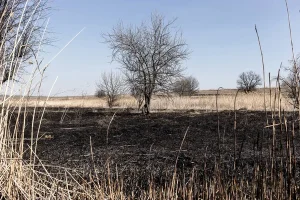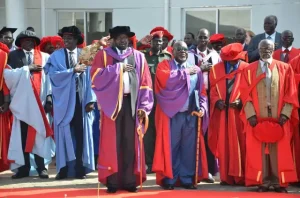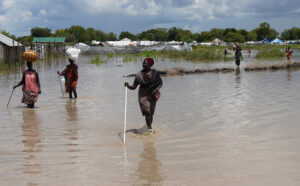A Closed System: The Trouble with South Sudan Oil Industry
Mading Gum September 20, 2022 1
For more than a decade, the South Sudan oil industry has operated something like a closed system. Recently, an environmental researcher asked me, “what happened to the case where the oil companies were sued before the East African Court of Justice?” “Well, the last time I asked one of the lawyers representing the affected communities to share with me the judgement or outcome of the settlement agreement, he refused”, I replied. “what a joke!”, he wondered. “Maybe the oil industry ate the case, just like other previous plans to reform the oil industry”, he concluded.
South Sudan’s oil industry continues to perpetuate natural resource extraction practices that have devastated several developing countries’ environments, local communities, and ecosystems. The oil industry is a closed system, with little information available to the public. Early this year, Alan Boswell, Project Director for the International Crisis Group, pointed out this anomaly: “South Sudan produces roughly 150,000 to 170,000 barrels a day. But because of the share owed to oil companies and fees paid to Sudan, it earns income from 45,000 barrels at most, according to the best estimates available. Little of that income reaches the national budget due to off-budget expenditures, undisclosed debt payments, and allocations to its opaque state oil company Nile Petroleum.” This opaque system fuels corruption inhibits mistrust and foments local discontent with the industry.
The oil industry sanctions the destruction of the natural environment. In fact, in a study on the environmental and social impacts of oil exploration and production, Loro Emmanuel and Lu Zhibo argue that oil production does more harm than good in South Sudan. Not only are local communities, farmlands, streams, and floodplains affected by oil activities but also the natural communities. While the oil companies strive to maximize profit, the government looks the other way as the environment and local communities pay the price for oil exploration and production activities. And this partly explains why the idea of giving out new oil blocks to new investors is being resisted by members of local communities. Unscrupulous investors.
South Sudan Oil industry, in its present form, can only attract unscrupulous investors. In data presented by the International Crisis Group, South Sudan produces roughly 170,000 barrels per day. International oil companies get away with half of this figure for the costs_ production, compensation, rent, etc. Additionally, they take 10% in terms of profit. What is left for the government of South Sudan is roughly 40% of the total production daily. While the data on how the government spends this 40% should be a subject for another day, this example shows that the biggest beneficiaries of the oil industry are international oil companies. If 50% of the oil produced daily goes to covering costs, how is this structured and who decides on these particulars? If the addition of 10% is purely their profit, what is in it for the communities, environment and development?
Here, many within the oil industry may object that the South Sudan government has already started addressing these issues. For example, in the recent 5th Oil and Power Conference held in Juba, Hon. Pout Kang, the South Sudan Minister of Petroleum stated that they (the Ministry of Petroleum and the Ministry of Environment and Forest) are working on carrying out environmental audits for the oil industry with the goal of enhancing the environmental legal and policy framework for the oil industry. He further alluded to some elements of transparency in reporting daily production and marketing. Perhaps, one important improvement is other institutions auditing the petroleum industry, although this cannot be independently verified. Yet, on closer examination, the measures are merely superficial. The modus operandi of the industry is opaqueness. An analyst once cursed, “ They don’t care about waste management and environmental protection. They want it cheaper, and the agreements are opaque so I don’t know what they signed, in terms of service delivery and environmental care.” Additionally, the oil companies are extremely powerful, and often water down plans to correct things. In the environmental circle, oil companies are known for thwarting the enactment of environmental laws which would hold them accountable for environmental damage. One environmental researcher a year ago claimed an official within the Ministry of Environment and Forestry confided in him that “They [DPOC and GPOC] don’t want the implementation of these policies and recently rejected a comprehensive environmental audit saying they are Western ideas, American ideas.”
The South Sudan oil industry is not just a closed system perched somewhere in the sky. It is a system that devours the oil revenue with little or nothing for those in whose name the natural resource is exploited. It is a system that glosses over the destruction of the natural environment and the socio-economic well-being of local communities. It is a system that benefits foreign oil companies. In short, it is a dark closed industry in need of radical transformation.





This’s a very interesting article counsel Mading Gum, this country need a lot in research work, health, environmental policies and advocacy because we’re trying to live in modern life but not embracing modern way of how things are done